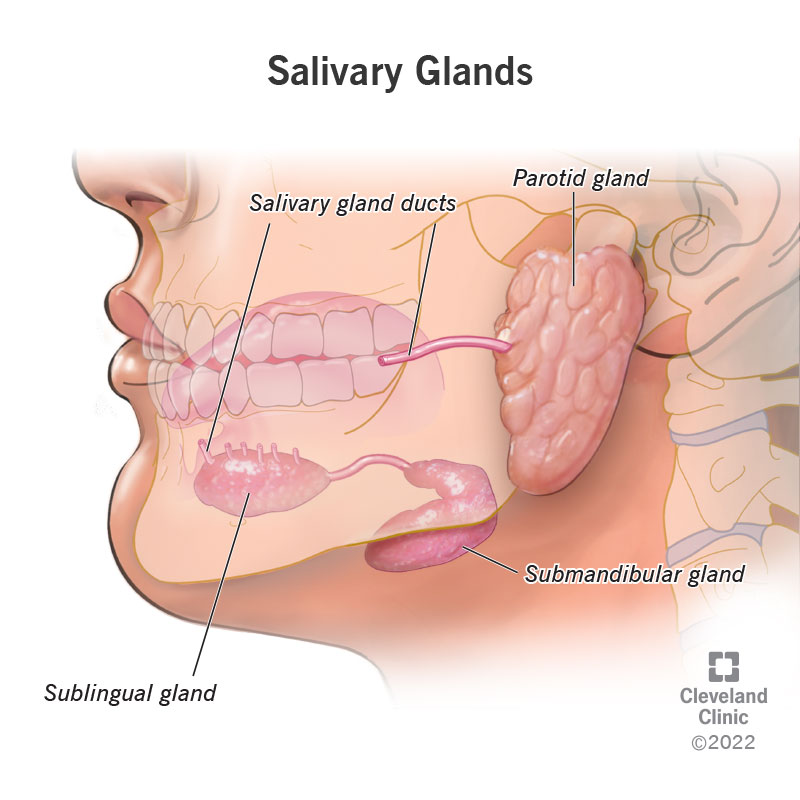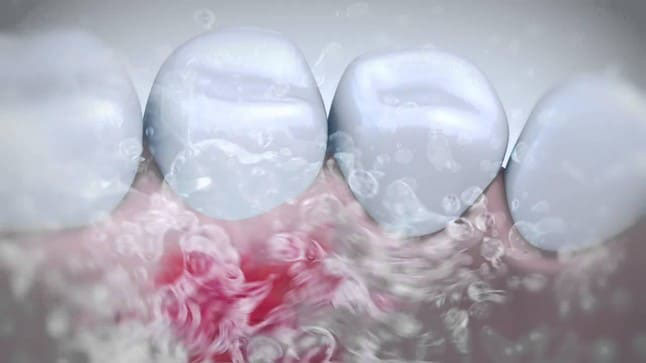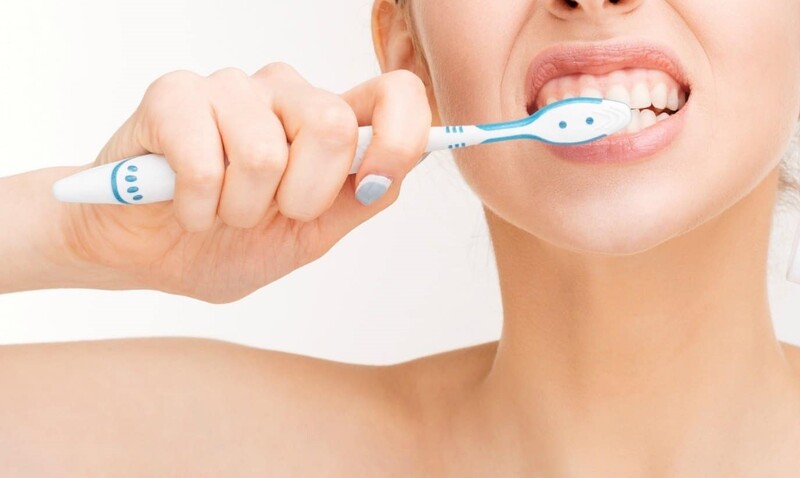6 Benefits of Saliva that You Need to Know will be shared through the following article, let’s find out!
I. Introduction to Saliva
1.1. Location
Mouthwash (saliva, phlegm) is a mixture of viscous fluid, yellow in color, and the residue is secreted from the salivary glands in the mouth, which will have different effects.
The enzyme ptyalin in saliva has good effects on the stomach. In addition, Saliva also contains muramidase, which has antibacterial properties and prevents inflammation in the oral cavity.

The salivary glands typically produce about 150ml to 1300ml of saliva per day. Saliva can be reduced in quantity and viscosity due to various factors such as endocrine, nervous, chemical, and nutritional factors.
The working location of the salivary glands is concentrated throughout the oral cavity. When the salivary glands empty into the mouth, they are evenly distributed on the mucous membrane of the mouth. It plays a particularly important role in the initial stage of the digestion process.
1.2. The main components of saliva
The main components of saliva include water, carbon dioxide (CO2), sugar, citric acid or phosphoric acid, synthetic colorants and flavors, as well as preservatives and thickeners depending on the type of Saliva.
II. Structure of the salivary glands
Structurally, the salivary glands are part of the endocrine gland group, including duct glands and acinar glands whose main function is to produce saliva:
2.1. Salivary acinar glands
Acini are the direct connection of many secretory cells forming and pumping into the duct system.
There are three types of salivary acinar glands:
- Mucous acini.
- Serous acini.
- Mixed acini.
Depending on the secretory cells of the acini, each salivary acinar gland will have a thin layer of membrane surrounding the cell rows. On the outside, there are muscle cells and epithelial cells whose task is to contract and transport saliva to the ducts.
Do dental crowns require anesthesia? The process of getting dental crowns with anesthesia
2.2. Ducts
Multiple ducts will merge together and form intercalated ducts, striated ducts, leading to the main duct and then flowing into the mouth. The structure of these ducts will have characteristics similar to the mucous membrane in the salivary glands and non-keratinized layers.
Thanks to the combination of many factors, this duct structure can function effectively. The most important factor is the ability of the surrounding muscles to contract rhythmically with each other.
Depending on the age and secondary factors, the composition, volume, and pH concentration of saliva will undergo changes.
When the nervous reflex encounters certain issues, it can cause a loss of salivation. There may be a decrease or increase in saliva production, causing difficulties for patients.
III. 6 Benefits of Saliva that You Need to Know
3.1. Important lubricating agent
Saliva contains substances that act as “lubricants” for food, making the process of delivering food to the stomach faster and supporting the digestive system.
It keeps the oral cavity sufficiently moist, preventing dryness and discomfort. When the mouth becomes dry, you will understand the important role of saliva as a natural lubricant.
What is an implant-supported removable denture? Is it truly worth using?

3.2. Ability to clot blood
SLI in saliva is a type of protein that is highly regarded for its ability to accelerate blood clotting, prevent infection, and quickly heal wounds. If there is a wound from tooth extraction or a wound in the mouth, saliva can effectively help clot the blood.
In addition, when a bone is fractured, people often bring their hands to their mouths to seek the assistance of saliva in clotting the blood promptly.
3.3. Antibacterial ability
In fact, saliva contains antibacterial substances that help prevent bacterial growth in the oral cavity and reduce the risk of gum inflammation and tooth decay, acting as a barrier against bacteria entering the body through the mouth.

Saliva helps remove food debris that may be stuck in the oral cavity, keeping the teeth healthy and dry. If the mouth becomes dry, bacteria can quickly multiply in your oral cavity.
3.4. Enhances digestive immune system
Saliva contains enzymes that support the digestion of proteins, making it easier for the body to digest and absorb nutrients.
3.5. Anti-aging effects
Research has shown that saliva contains hormones and globulin A that contribute to extending lifespan and preventing the aging and degeneration of certain body parts.
It is important to note that saliva is very beneficial and should not be spit out indiscriminately.
3.6. Inhibits cancer cells
Saliva also has the ability to kill some cancer cells. Therefore, it is recommended to eat slowly and chew thoroughly so that saliva mixes with the food, promoting the rapid development and growth of cells. This can extend lifespan and limit the aging process in humans.
What is Amalgam Dental Filling? 4 Advantages of Amalgam Dental Filling
IV. Common diseases related to salivary glands
Saliva, the fluid in our mouth, can sometimes contain substances that can make us sick. Some of these substances include sugar, calories, and carbon dioxide, which can cause issues such as tooth decay, stomach pain, or high blood pressure.
Additionally, there is a condition called Respiratory Syncytial (RS) that can cause difficulty breathing, coughing, and wheezing.
V. Important things to note about salivary glands
Did you know that saliva plays a crucial role in supporting the treatment and care of oral health? Any issues will be reflected through saliva, such as dry mouth, difficulty breathing, or foul-smelling saliva.
To protect oral health, it is important to consider the following:
- Maintain proper oral hygiene by brushing regularly to prevent oral diseases.

Regular dental check-ups every 3-6 months are for self-care, preventing tooth loss, and screening for early gum inflammation, gum disease, and cavities.
A team of dental specialists with over 15 years of experience will help you understand the condition of your oral health and avoid harmful risks to your well-being.
Modern equipment and advanced technology applied in a sterile environment will not cause cross-infection.
So, aren’t the benefits of saliva truly amazing? We hope that everyone is aware of the benefits of saliva and utilizes them correctly, as well as takes better care of their oral health.
How to Stop Bleeding after Wisdom Tooth Extraction? Some Ways to Control Bleeding
Tư vấn chuyên môn bài viết:
BÁC SĨ DƯƠNG THỊ THÙY NGA
BEDENTAL - TOP STANDARD DENTISTRY SYSTEM
In HANOI
Address 1: 7B Thi Sach St, Ngo Thi Nham, Hai Ba Trung Dist, Ha Noi. - 0934.61.9090
Address 2: No 129 Hoang Ngan, Yen Hoa, Cau Giay Dist, Ha Noi. - 0934.61.9090
In HO CHI MINH
Address 1: 53 -55 -57 Pho Duc Chinh St, Nguyen Thai Binh, Dist. 1, Ho Chi Minh. - 0766.00.8080
Working: 9am - 8pm everyday
Website: https://bedental.vn/en/





